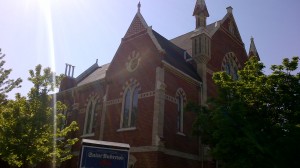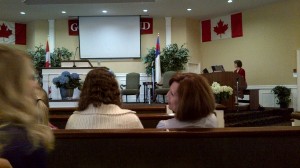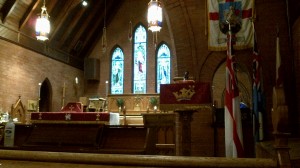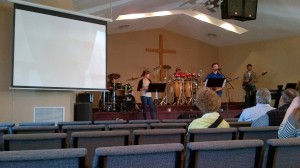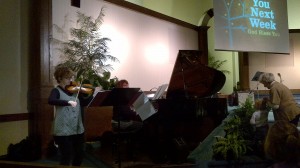As I travel around the city of Barrie and witness her different expressions of Christian community, I can’t help but think occasionally about the strange group of followers that Jesus gathered around himself.

You might think, especially if you read a lot of books on ‘leadership’, that Jesus would have had a certain type of person in mind to carry out his mission and vision. Someone who could take orders, but also take initiative, someone passionately devoted to his cause, a quick learner but but also a willing subordinate. And with this ideal in mind, he might have recruited a number of like-minded people who would quickly learn the roles he had in mind for them.
Strangely, Jesus chose to do something completely different.
We are told in Mark 3 that Jesus hand-picked twelve followers from the large crowds that were flocking to his message. So, given that he had far more candidates available than positions to fill, why on earth did he choose such a strange, conflicted bunch?
Let’s consider the political situation at the time. Jesus spent most of his life in ‘occupied territory.’ The situation in 1st century Palestine might seem very familiar to an inhabitant, say, of apartheid-era South Africa, or Soviet-occupied East Germany, or even present day occupied Palestinian territories.
The Jewish nation he grew up in had negotiated an uneasy peace with her Roman overlords, but the threat of violent oppression always remained. Just like in occupied France during the Second World War, different groups responded differently.
The Zealots, for example, advocated violent overthrow of the unwanted invaders. Some might call them freedom fighters, others would call them terrorists. The Sadducees, on the other hand, were consummate politicians. They obtained positions of power under the new regime, ran government departments on behalf of the empire, as well as being responsible for the religious life of the country.
Another group, the Pharisees were more separatist in nature, focussing on maintaining ideological purity against external threats. And finally the Essenes were a kind of monastic movement, choosing to focus inwards on communal, ascetic, living.
And into this complex, politically charged environment, Jesus started to talk about a new king, a new empire, a new way of life. And to spread his message, he recruited a ‘team’ consisting of some very weird characters indeed.
There was Simon Peter, the laborer. A leader, a hothead, just as quick to rush into situations as he was to desperately try to extricate himself from them when they got difficult.
Alongside him was his brother Andrew. Very different in temperament, he was a devout spiritual seeker and evangelist.
Another contrasting pair of brothers was also recruited. James, the fanatic, the troublemaker and eventual martyr; and his brother John, who devoted his life’s energies to calling the fledgling Christian community to live in love and harmony.
Yet more contrasts: we see James and Jude, traditional Jewish names, but also Philip, a Greek name, and someone who is recorded as connecting the Greek community to Jesus. A mediator, perhaps, who could stand up for the needs of a minority community.
In Nathaniel, we see a devout, observant Jew. In Thomas, we meet a fatalist and a skeptic, and yet also someone who, once he found the proof he needed of Christ’s claims, would travel further than any of his contemporaries to spread the message.
Stirring things up even more, Jesus saw fit to recruit Simon the ‘Zealot.’
Today, he’d either be known as ‘Simon the Patriot’ or ‘Simon the Terrorist’, depending on how you viewed the Roman occupation. One person who would definitely use the latter term would be another recruit, Matthew.
Matthew, the tax collector. Matthew, the tool of the occupation. Matthew the collaborator. The guy who had made a tidy profit from working hand in hand with the military force that Simon had dedicated his life to overthrowing.
I’m sure Simon and Matthew had very intense conversations around the campfire at night. Maybe Jesus had a sufficiently mischievous streak to send them out together when he assigned the disciples to work in pairs?
And then, finally, Jesus recruited his team’s accountant.
Judas Iscariot.
It’s very clear that Jesus never read a book on management theory.
Whatever he was looking for in followers, it clearly wasn’t bland uniformity.
 I learned today, (in this remarkable book), that the words economy, ecology and ecumenical all share the same Greek root, the word for ‘home’.
I learned today, (in this remarkable book), that the words economy, ecology and ecumenical all share the same Greek root, the word for ‘home’.